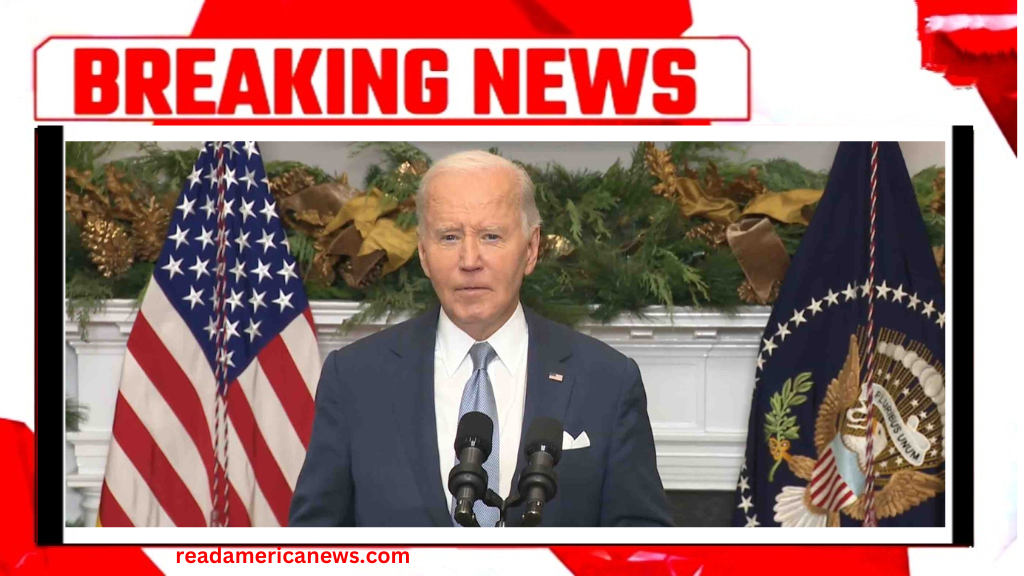THE PRESIDENT: Good afternoon. There’s a lot happening in the Middle East.
After 13 years of civil war in Syria and more than half a century of oppressive rule under Bashar Assad and his father before him, rebel forces have succeeded in forcing Assad to resign and leave the country. While his whereabouts are uncertain, reports suggest he may be in Moscow.
The fall of the Assad regime marks a moment of justice. This regime has caused untold suffering, torturing and killing hundreds of thousands of innocent Syrians.
The collapse of the regime is not only an act of justice but also an opportunity for Syria’s long-suffering people to begin building a better future for their country. However, it also comes with risks and uncertainties. As we look ahead to what happens next, the United States will work closely with our partners and those involved in Syria to help them capitalize on the opportunities while managing the risks.
For years, Assad’s primary supporters have been Iran, Hezbollah, and Russia. But over the past week, their support has collapsed because each of these powers is now weaker than when I first took office. Here’s why:
Following Hamas’s attack on Israel on October 7, 2023, the world responded with horror, but Iran and its allies decided to escalate tensions by waging a multi-front war against Israel. This was a major strategic mistake for Iran.
Today, Hezbollah, Iran’s primary territorial proxy, is on the defensive. Just 12 days ago, I addressed the ceasefire agreement in Lebanon, which was only possible due to Hezbollah’s severe weakening. Similarly, Hamas has also been significantly diminished.
Iran’s military strength has been undermined. After Iran attempted two strikes on Israel, the United States led a coalition to defend Israel and thwart those attacks.
This has made it impossible for Iran and Hezbollah to continue supporting Assad’s regime.
Furthermore, Russia’s support for Assad has weakened. The resilience of Ukraine, with the support of the United States and our allies, has taken a toll on Russian forces, leaving Russia unable to defend Assad’s regime.
The outcome is clear: for the first time, neither Russia, Iran, nor Hezbollah could protect this oppressive regime in Syria. This is directly tied to the decisive actions taken by Ukraine and Israel, with unwavering support from the United States.
Over the past four years, my administration has pursued a focused and principled policy on Syria:
- Sanctions: From the beginning, we made it clear that sanctions against Assad would remain until he engaged in meaningful negotiations to end the civil war, as outlined in the 2015 UN Security Council resolution. Assad’s refusal to do so led us to impose extensive sanctions on him and those responsible for atrocities against the Syrian people.
- Military Presence: We kept a military presence in Syria focused on countering ISIS, supporting local partners on the ground, and preventing ISIS from establishing a safe haven.
- Support for Israel: We consistently supported Israel’s right to act against Iranian networks in Syria and other actors aligned with Iran who were funneling lethal aid into Lebanon. When necessary, we used military force to protect U.S. forces and ensure Israel’s security.
These efforts have altered the balance of power in the region. With this combination of support for our allies, sanctions, diplomacy, and targeted military action, new opportunities are emerging for both the Syrian people and the region.
Moving forward, the United States will:
- Support Syria’s neighboring countries, including Jordan, Lebanon, Iraq, and Israel, if any threats arise during this transition. I’ll be speaking with leaders from the region in the coming days and sending senior officials to the area to help.
- Ensure stability in eastern Syria, protect our personnel from any threats, and continue our mission against ISIS, including securing detention facilities holding ISIS prisoners. We remain vigilant, knowing ISIS may attempt to exploit any power vacuum to re-establish a safe haven.
- Engage with all Syrian groups as part of a UN-led process to guide Syria towards an independent, sovereign future with a new constitution and government that represents all Syrians. This process will be determined by the Syrian people themselves, and we will provide humanitarian support to help rebuild Syria after over a decade of conflict and brutality.
- Remain vigilant in monitoring the actions of rebel groups that played a role in bringing down Assad, as some have their own troubling records of human rights violations. We’ll closely assess their actions as they take on more responsibility in the new government.
We also remain committed to securing the safe return of Americans in Syria, including Austin Tice, who was captured over 12 years ago. Our goal is to bring him back to his family.
This is a moment of significant risk, but also a rare opportunity for the Syrian people to shape their future free from tyranny. While the path forward is uncertain, it presents a historic chance for a more secure and prosperous Middle East, where our allies are protected and adversaries are contained.
The opposition groups that helped bring down Assad must now show their commitment to the rights of all Syrians, the rule of law, and the protection of minority groups.
These past days have been historic, and the days ahead will determine Syria’s future. We will approach them with strength, wisdom, and resolve.
Thank you. God bless America. And may God protect our troops.
Q: What should happen to Assad now, Mr. President?
THE PRESIDENT: Assad should be held accountable.
Q: What do we know about Austin Tice’s whereabouts and his safety?
THE PRESIDENT: We believe he’s alive and are working to bring him home. However, we don’t have direct confirmation yet.
Q: Have you ordered an operation to locate him, Mr. President?
THE PRESIDENT: We are committed to getting him back, but we need to first confirm where he is.
Thank you.





